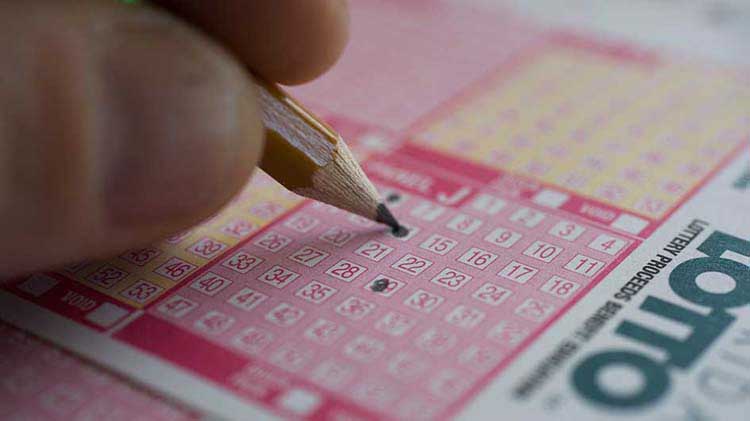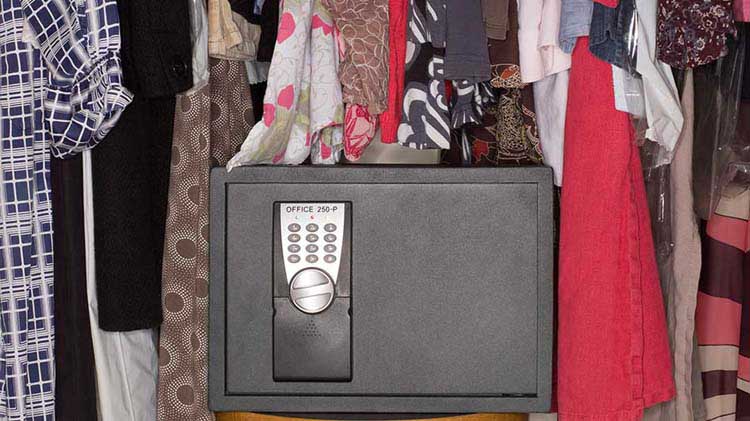What to do if you win the lottery
You’ve just won the lottery! What’s next? Get advice from professionals and past winners on the steps to take before turning in your winning ticket.
Many people might dream of winning the lottery one day, but the odds of winning the Powerball jackpot are just one in 292.2 million. While you’re more likely to be struck by lightning in your lifetime, most of us have probably daydreamed about what we'd do with a spare $100 million. If you’re one of the lucky ones, learn from financial professionals and former winners on what to do when you win the lottery.
Before turning in the winning ticket
- Secure your ticket. Make several copies of both sides to show your lawyer and accountant, and then lock the actual ticket away in a bank safe deposit box or a secure personal safe. Once you have a team of advisors in place, have them review the rules and contract so you know how to sign your lottery ticket — in some cases, signing your ticket might prevent you from creating a blind trust later.
- Take your time. You have a set amount of time to turn in your ticket, so don't run off to the lottery office first thing the next morning. Take a deep breath, then carefully form your team of experts and make plans before you contact the lottery officials. Depending on the type of prize won and the state you are in, the period to claim the lottery might range from several days to six months to a year. You can confirm how to claim your lottery winnings on each state’s lottery agency website.
- Protect your privacy. As tempting as it may be to shout it from the rooftops and throw a huge "I won the lottery!" party, keep it as much to yourself as possible, especially before turning in your ticket. Some lotteries will require you to make your name public, give interviews or show up at a press conference. If so, consider changing your phone number and email address and set up a new P.O. box beforehand to avoid being bombarded with requests. You may also consider forming a blind trust through your attorney to anonymously receive the money, keeping your name out of the spotlight.
- Put together a team of experts. You're going to need a lawyer, accountant and financial advisor who has experience with large financial windfalls — finding them should be one of your first steps before you claim your money. They can also help you find answers to questions like, “If I win the lottery, how much can I give to family?” or “How long after winning the lottery do you get the money?”.
- Make a general plan. Before forming specific financial plans with your advisors, step back and think big-picture about what you want to do with the money. Write down your personal, financial, lifestyle, family and charity goals so you can return to that plan later.
- Consider how to invest lottery winnings. Would investing in stocks, bonds or real estate be more profitable for the future? Your team of experts can talk you through the pros and cons of each.
- Lump sum or annuities? One of the decisions you and your team will want to discuss is whether to take your winnings in one lump sum (usually around 60% of the total value) or have it paid out to you annually over some time. Long-term investments take financial wisdom and restraint, but with careful planning, you may be able to grow your lump-sum winnings larger than the future annuity payments would have been. However, if you need some structural help to keep from overspending too quickly, an annual payout is a solid, responsible way to help ensure you'll continue to have income through most of your adult life.
- Plan for the future. Sadly, winning the lottery won’t make you immortal. Work with your team to sort out your estate planning, including your will, so your family is provided for if something happens to you.
Once you have your money
- Bank it. Don't show up at the cashier counter with a check for millions — first talk to the bank's upper management or private banking department to discuss options for holding large amounts of money. Remember, the government only insures individual bank accounts up to $250,000, so think about spreading your wealth around multiple accounts and banks.
- Set a budget. Silly, right? You have all the money you might ever need — why do you need a budget? It’s not silly at all. Sit down with your advisors and take a hard look at how much you’ll have after federal, state and local taxes are paid; what new annual expenses you'll have (for things like property taxes, upkeep and paying your financial team) and how much you want to give to charity. Think about future higher education expenses for your family and how much you'll need in your golden years. Then set strict monthly and annual budgets for what's left over and stick to them.
- Pay off debt. One of the smartest financial decisions you can make when you earn extra income is to pay off any outstanding debts, such as your mortgage, car, student loans and credit cards. Paying off all your debt can help relieve financial burdens and save you money on future interest payments.
- Create an emergency fund. It’s wise to put aside extra income into an emergency fund to help you manage the unexpected so you can avoid dipping into your savings or investment funds if an emergency does arise.
- Form a charity and giving plan. As soon as people find out you've hit it big, you might have to deal with financial requests from friends, family and charities. Talk to your team about gifting taxation structures and how much you can give each year while still maintaining the lifestyle you desire. You may also consider forming an official charity foundation.
Maintain your perspective and sense of self
- Don't quit your day job. Certainly not until you’ve received your lottery money, but even then, consider sticking with part-time work or at least a passionate hobby. Depending on how important work is to your sense of self, you may want to try a new career or go back to school to study something you've always been interested in.
- Keep a healthy mind and body. We all know money can't buy happiness — and in some cases, it can even lead to stress. Try to eat right, exercise, talk to close family and friends and seek professional counseling if handling your new wealth is causing emotional strain.




